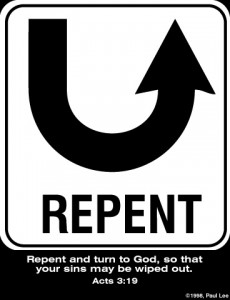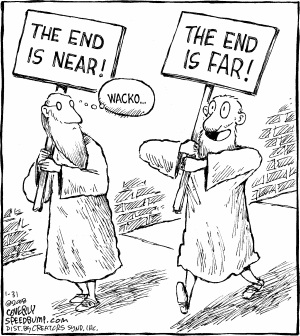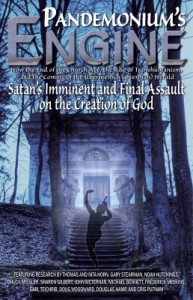 First, I want to assure you that I long for the Lord’s appearance and I believe it is near. I also think there are good arguments to support the idea. Unfortunately, there are also some really bad ones. I think it is neat that the constellations are lining up as Revelation 12 describes on 9/29 because I think it is the real birthday of Jesus but I would never use that as predictor for Christ’s return. I confess that I used to get excited by many of the various date setting schemes. However, I was convicted by the Spirit of God when I saw that they always fail and lead to great error and confusion. I repented and I refuse to set dates or make predictions. To say the time is near is enough. John the Baptist came as a prophet declaring the Day of the Lord. His message was “Repent, for the kingdom of heaven is at hand”(Mt 3:2). Will you listen?
First, I want to assure you that I long for the Lord’s appearance and I believe it is near. I also think there are good arguments to support the idea. Unfortunately, there are also some really bad ones. I think it is neat that the constellations are lining up as Revelation 12 describes on 9/29 because I think it is the real birthday of Jesus but I would never use that as predictor for Christ’s return. I confess that I used to get excited by many of the various date setting schemes. However, I was convicted by the Spirit of God when I saw that they always fail and lead to great error and confusion. I repented and I refuse to set dates or make predictions. To say the time is near is enough. John the Baptist came as a prophet declaring the Day of the Lord. His message was “Repent, for the kingdom of heaven is at hand”(Mt 3:2). Will you listen?
Harold Camping recently set a date and when it passed, he simply moved it forward. This is not new behavior as he did the same thing back in 1994.
Harold Camping, in his book Are You Ready?, predicted the Lord would return in September 1994. The book was full of numerology that added up to 1994 as the date of Christ’s return. (rapture ready.com)
The only reason someone does not repent when they have advocated a date and it passes is pride. Pride is the root of sinfulness. CS Lewis famously wrote:
Unchastity, anger, greed, drunkenness, and all that, are mere fleabites in comparison: it was through Pride that the devil became the devil: Pride leads to every other vice: it is the complete anti-God state of mind. (Lewis, Mere Christianity, 122)
If you are right and Jesus returns then Hallelujah but I hope you are prepared to humble yourself when nothing happens. So what are you going to do if nothing happens on 9/29? Will you be like Harold Camping make excuses and change the date or will you admit you are wrong and repent of date setting? Repent means you completely turn from it. What I would like to suggest is that you simply learn your lesson and never engage in it again. I pray you will swallow your pride, turn to Jesus and repent. Also, do as I am doing and teach others not to do it. It is your duty as a disciple. This sort of thing has caused so many problems for Christians, it is not harmless, it ruins lives!
For the past month, reports have been pouring out of Vietnam that an unknown number of Hmong Christians have been killed, attacked, or arrested by military forces. The Vietnamese government has closed off outside access to the Muong Nhe District in Dien Bien, where an estimated 10,000 Hmong Christians from the Central Highlands and Dien Bien have been congregating since late April. Insiders who are able to leak information past government forces and media controls have reported that as many as 70 Hmong have been killed so far, though exact numbers cannot be confirmed. These Hmong have also been brutally attacked and arrested by the Vietnamese government, while most are fleeing into hiding to spare their lives. Meanwhile the outside world is unable to send in help.
But why did this even take place? What led 10,000 Hmong Christians to come together in peace yet face such a brutal and violent end? Answer: Harold Camping. Worldwide media have reported on the gathering of Hmong in this region, and ICC sources have confirmed the underlying premise of these gatherings to be primarily due to Mr. Camping’s influence.
Knowing that date setting leads to this sort of thing should pierce your heart and lead to repentance.
See, I have told you beforehand. So, if they say to you, ‘Look, he is in the wilderness,’ do not go out. If they say, ‘Look, he is in the inner rooms,’ do not believe it. For as the lightning comes from the east and shines as far as the west, so will be the coming of the Son of Man.
(Mt 24:25-27)
Please see the Date Setter’s Diary at Rapture Ready.com









